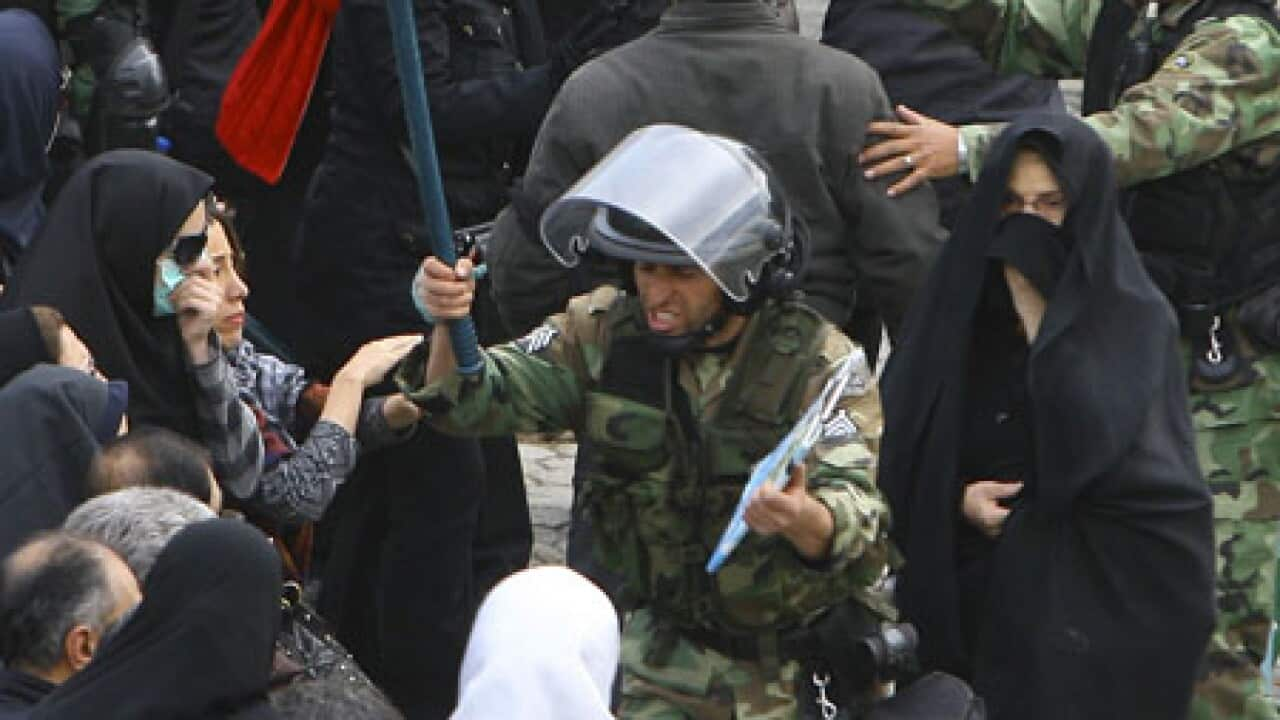Iran is set to mark the 31st anniversary of the Islamic revolution with nationwide marches, while security forces are on high alert as opposition groups prepare for more protests.
This year's celebrations come as the simmering dispute with world powers over the country's nuclear program approaches a critical point following Iran's nuclear ambitions.
Celebrations to mark the day the US-backed shah fell in 1979 have been traditionally festive, an opportunity for Iranian leaders to showcase popular support for the establishment.
But this year opposition groups, led by some of the founding fathers of the Islamic republic, look set to dominate the national day as they continue to reject the legitimacy of President Mahmoud Ahmadinejad's government.
Revolutionary Guards on high alert
The elite Revolutionary Guards and police are doing everything they can to try to prevent protests which, since they first erupted last June, have threatened the very pillars of the Islamic regime and split the senior clergy.
"If anyone wants to disrupt this glorious ceremony, they will be confronted by people and we too are fully prepared," police chief Esmail Ahmadi Moghaddam warned on Tuesday.
Several people who had been planning to protest were already in custody, he added.
Concerns mount over protests
Ahmadinejad's disputed re-election last June plunged the Islamic republic into one of its worst ever political crises, with the opposition refusing to take the fight off the streets despite often deadly crackdowns.
Most recently, eight people were killed on the Shi'ite holy day of Ashura on December 27 and hundreds were jailed as the authorities battled protesters they accuse of seeking to topple the regime and siding with Iran's enemies abroad.
Iran's all-powerful supreme leader Ayatollah Ali Khamenei says he wants Thursday's celebration to be a show of unity and to deliver a stunning "punch" to "arrogant" powers.
Ayatollah endorses government
He has dismissed allegations of fraud in the election, blamed the West for the post-poll unrest and slammed continuing dissent as "sedition".
The opposition is led by former stalwarts of the Islamic republic, including one-time premier Mir Hossein Mousavi, who says the 1979 revolution failed because the shah-era "roots of tyranny and dictatorship" still exist.
"Dictatorship in the name of religion is the worst kind," he said earlier this month.
Mousavi and Mehdi Karroubi, the other main opposition leader, have urged a mass turnout by their supporters in what is known as the "Green Movement."
Internet woes dog celebrations
Ahead of the anniversary, internet connections slowed to a crawl and text messaging services were disrupted, with the government blaming technical glitches.
US internet giant Google said on Iranian users of its Gmail service had "trouble" using the service.
"We can confirm a sharp drop in traffic and we have looked at our own networks and found that they are working properly," Google said.
Google's statement came after The Wall Street Journal reported that Iran's telecommunications agency had announced a permanent suspension of Google's Gmail and planned to roll out a national email service for Iranian citizens.

